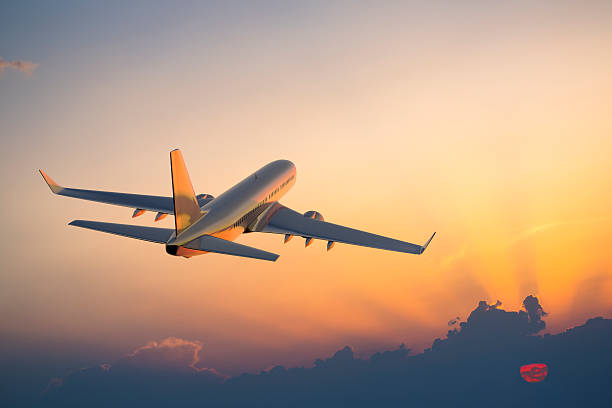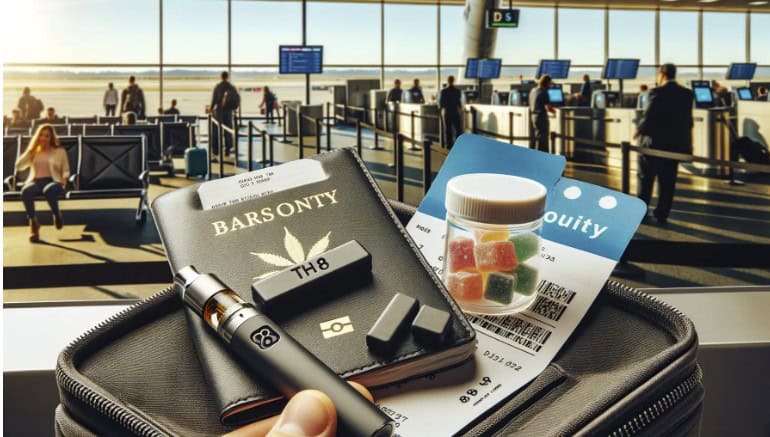Traveling with CBD: A Guide to Federal Guidelines for USA and International Travel
As CBD products continue to grow in popularity for their therapeutic benefits, many travelers want to take their CBD oils, creams, or capsules along for the journey. However, it’s essential to understand the rules and regulations surrounding CBD both in the United States and abroad. This article breaks down the latest federal guidelines and international travel requirements for carrying CBD products to help you navigate your next trip smoothly and safely.
CBD and U.S. Federal Guidelines
The 2018 Farm Bill legalized the production and sale of hemp-derived CBD products, as long as they contain less than 0.3% THC (the psychoactive compound in cannabis). Despite this, CBD is still regulated, particularly when it comes to travel.

traveling, traveling with cbd, cbd and travel, TSA and CBD, Can I travel with CBD?,
Domestic Air Travel (USA)
-
TSA Regulations: The Transportation Security Administration (TSA) allows passengers to travel with CBD products, provided that they are derived from hemp and contain no more than 0.3% THC. CBD oil and other liquid forms of CBD must adhere to TSA’s standard liquid rules, which means that they must be in containers of 3.4 ounces (100 milliliters) or less and placed in a quart-sized bag when passing through security.
-
Prescription CBD (Epidiolex): Epidiolex, an FDA-approved medication derived from cannabis, is allowed for travel with a prescription. If you carry this product, having proper documentation from your healthcare provider is recommended.
-
CBD Flower or Hemp Flower: While CBD oils, tinctures, and topicals are generally permitted, bringing hemp flower may raise more scrutiny due to its similarity in appearance to marijuana. To avoid confusion, it’s better to stick to CBD products like tinctures or capsules.
Travel Across U.S. State Borders
Although CBD is legal federally, state laws can vary. Some states have stricter laws regarding the sale and possession of CBD, particularly those with more restrictive cannabis laws. It’s always a good idea to research the specific laws of the state you’re traveling to, especially if you are carrying higher doses or different forms of CBD (such as edibles or vaping products).

traveling, traveling with cbd, cbd and travel, TSA and CBD, Can I travel with CBD?,
International Travel with CBD
When it comes to international travel, the guidelines around CBD vary even more drastically, and what is legal in one country may be completely illegal in another. Here’s what you need to know:
General Guidelines
-
CBD Legalization Varies Widely: Some countries fully legalize CBD, while others impose strict bans. For example, countries in Europe like the UK and Germany allow hemp-derived CBD products with low levels of THC, but countries like Singapore, Malaysia, and the United Arab Emirates have stringent cannabis laws that prohibit the possession of CBD.
-
CBD Product Requirements: In some countries, only CBD isolates (which contain 0% THC) are permitted. Broad-spectrum or full-spectrum products that contain trace amounts of THC may be illegal even if they are below 0.3%.
-
Medical CBD Use: Some nations have made exceptions for medical CBD users. For instance, certain European countries and Canada allow medical CBD with the proper prescription. Always carry your prescription and any related documentation to show customs officials if necessary.
International Destinations Where CBD is Permitted
-
Canada: CBD is legal, but bringing any cannabis product into the country (even CBD) is prohibited, so it’s better to buy CBD once you arrive in Canada.
-
United Kingdom: Hemp-derived CBD with less than 0.2% THC is legal for both personal and medical use.
-
European Union: Many EU countries have legalized CBD with low THC levels (typically less than 0.2%). However, regulations can vary from one country to another, so always check the local rules for your destination.
-
South Africa: CBD products are legal if they contain less than 20 mg of CBD and 0.001% THC.
Countries Where CBD is Strictly Prohibited
-
United Arab Emirates: CBD and cannabis products are illegal, and possession can lead to severe legal consequences, including imprisonment.
-
Japan: Only CBD isolates with 0% THC are permitted. Full-spectrum or broad-spectrum CBD, which may contain trace amounts of THC, is illegal.
-
Singapore: CBD is banned entirely, and possessing or using it can result in strict penalties, including jail time or fines.
Tips for International CBD Travel
-
Research Local Laws: Always check the specific CBD regulations of your destination country. The legality of CBD can vary even within regions of a single country.
-
Carry Documentation: If you need CBD for medical purposes, always carry a copy of your prescription and any related documents that show the legality of your product.
-
Leave it at Home: If there’s any uncertainty about the legality of CBD in the country you’re visiting, it’s best to leave it at home and seek alternatives upon arrival.
While traveling with CBD within the U.S. is generally straightforward, international travel requires more caution. Always ensure that your products meet federal guidelines for domestic travel, and thoroughly research the laws of any country you plan to visit. Following these steps will help you avoid legal complications and ensure that your journey is as smooth and stress-free as possible. Safe travels!





